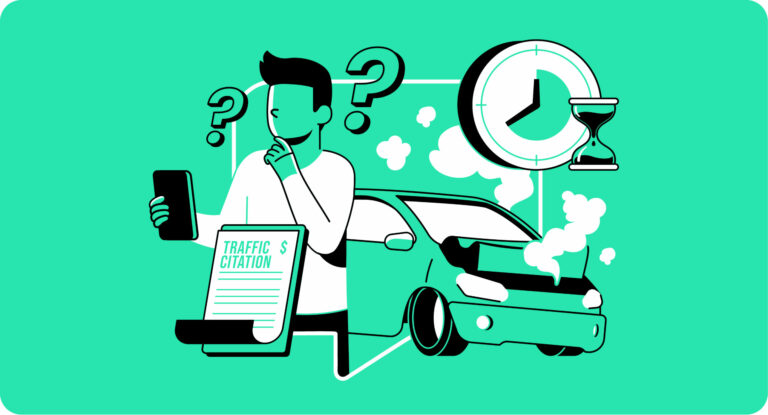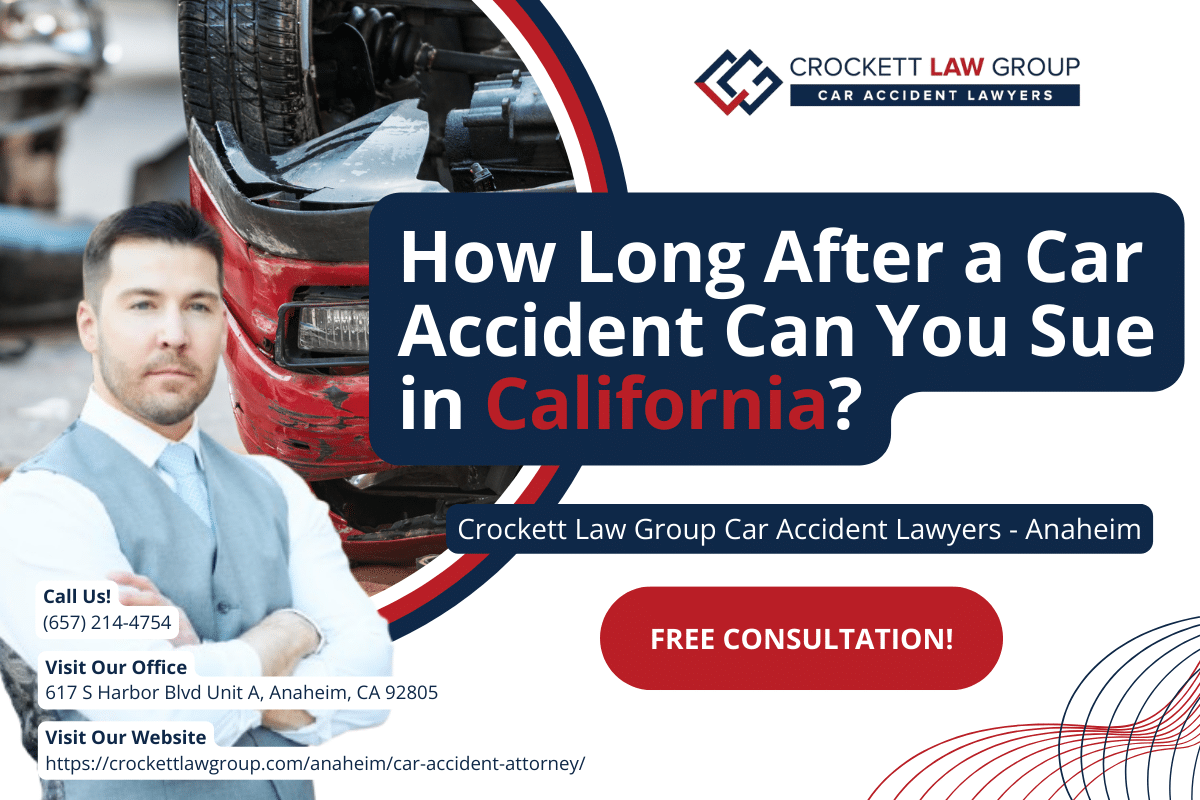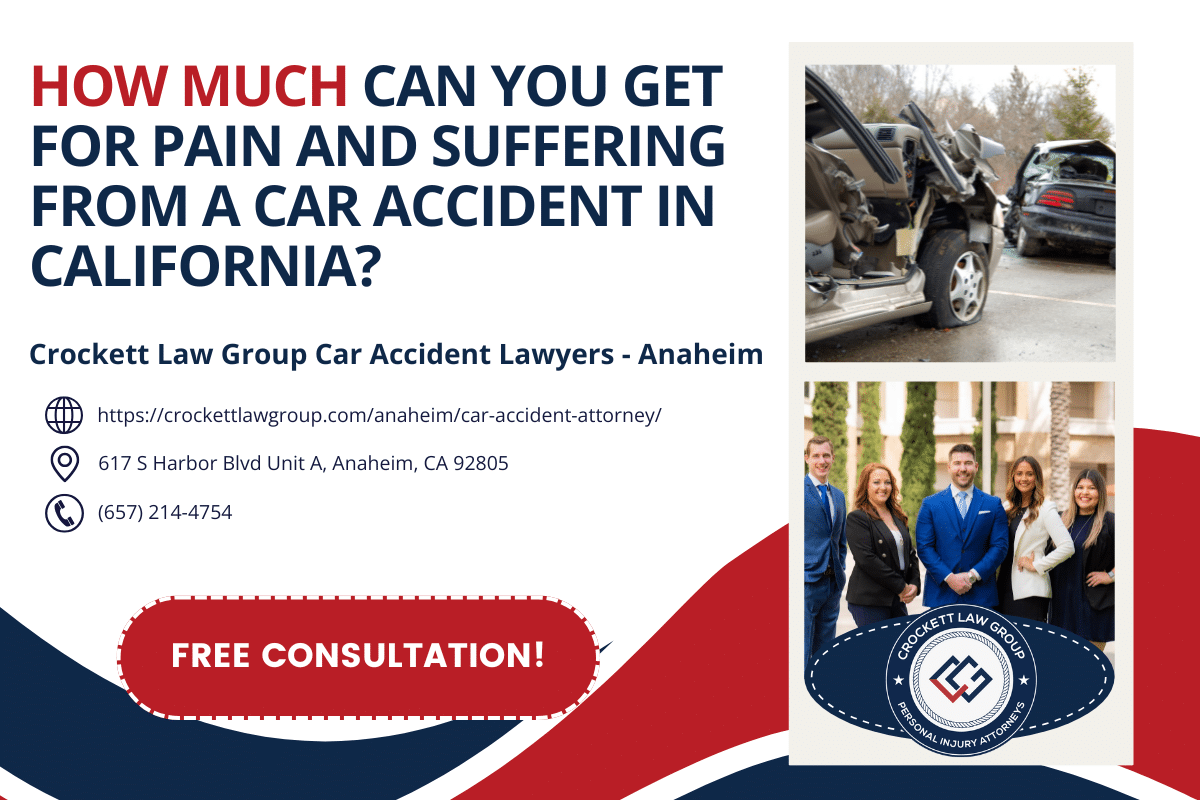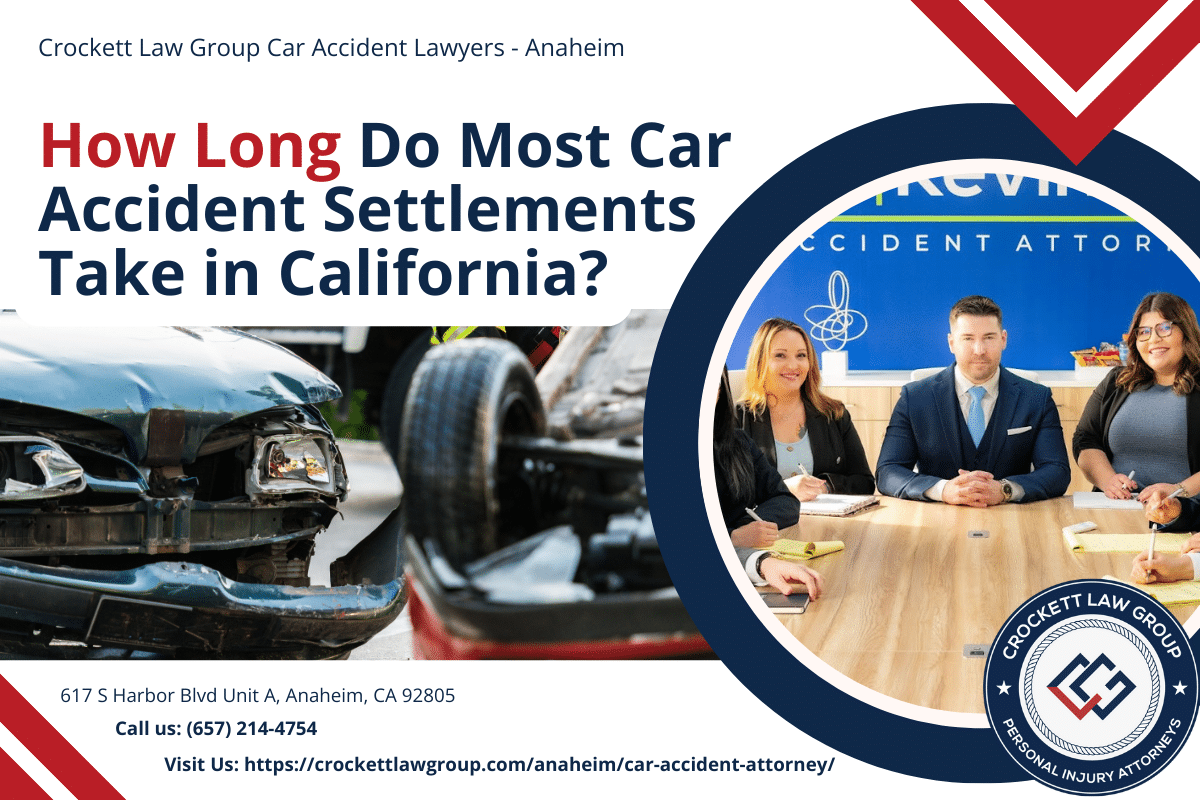Police officers issue traffic citations for plenty of reasons. Some common causes include speeding, failing to use a turn signal and running a red light. These actions are considered violations of traffic laws, which carry legal consequences.
There are different types of traffic tickets, and understanding the kind of ticket given to you is crucial to ensure that you can take the necessary steps when dealing with your citation.
Whether you’re a seasoned driver or a new one who just got a hold of their driver’s license, it is important that you deal with your traffic ticket as soon as possible to avoid further complications.
Immediate Actions After a Car Accident
Whether you’re the victim or the party at fault, the aftermath of a car accident can be a very stressful and traumatizing experience, which is why it is very important to know what steps to take following an accident.
- Try to remain calm
- Get off the road and move to a safe place
- Check yourself for injuries
- Ensure the safety of all the passengers
- Seek medical help
- Call law enforcement or 911
- Take photographic evidence of the car accident scene
- Exchange information with the other party involved in the accident
- Avoid making deals regarding damage payment without proper legal guidance
- Call your insurance provider
- Collect relevant information and documents
- Seek legal counsel
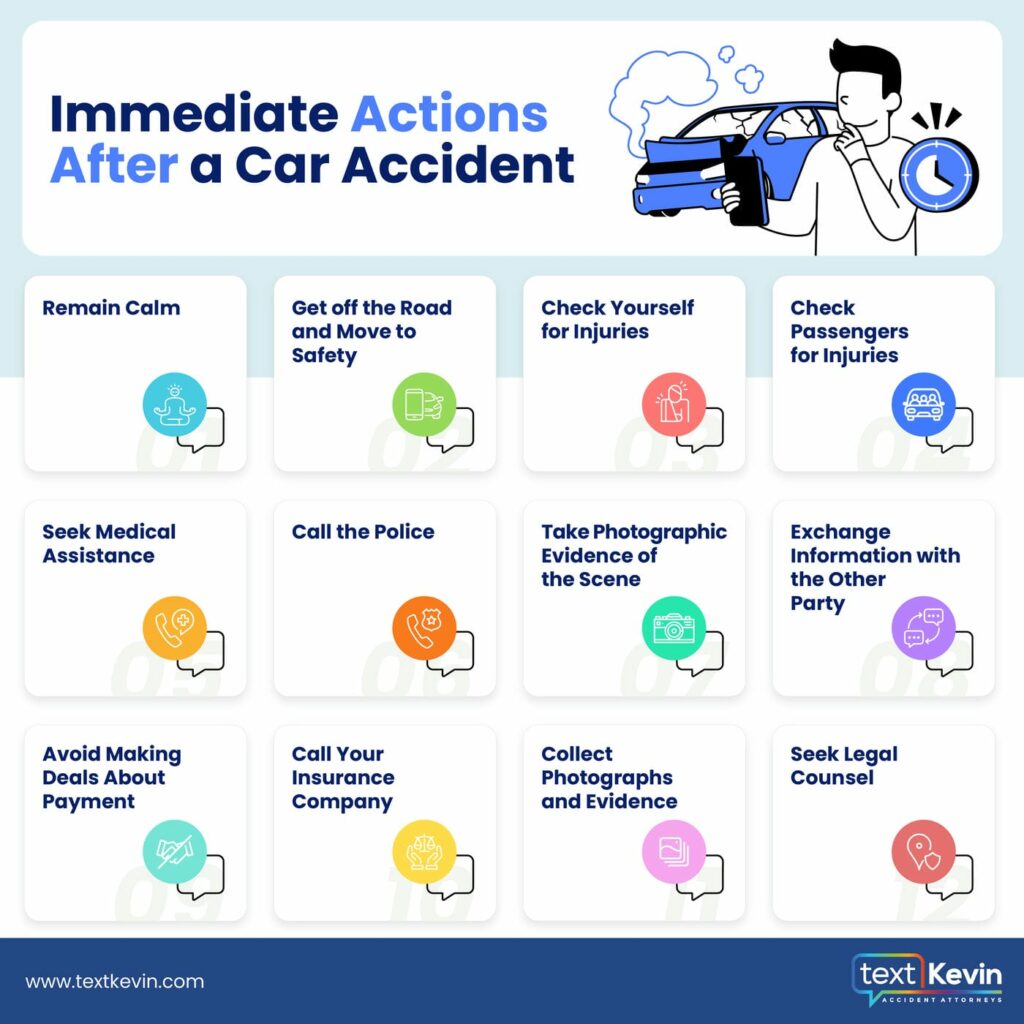
Timeframe for Citation Issuance
Generally, the statute of limitations pertains to the limited timeframe set to when a plaintiff can file a claim. A ticket citation charges the at-fault party for breaking traffic law. This means that being issued a ticket citation marks the end of that time limit. Statutory limits may vary from different jurisdictions depending on the state laws.
In some cases, the cause of the accident and the liable party can be easily determined, and the tickets can be written and issued as soon as possible. However, this is not always the case.
Sometimes, police officers could take days, weeks or even months before they could issue one, depending on how severe and complicated the case is.
Tip
In a car accident case, determining fault is crucial to ensure the party responsible for the accident is held liable for the damages and injuries it has caused. However, the steps taken to figure out what happened can be time-consuming, resulting in a delay in the traffic citation process.
Role of Law Enforcement
Law enforcement plays a crucial role in car accident cases. When they arrive at the scene of the accident, they perform a variety of duties. These duties include ensuring the safety of all the people and arranging medical care for those who have sustained injuries due to the accident.
Following that, they will be the ones to secure the accident scene and conduct a thorough investigation into how and why the accident happened. They will conduct the initial reports, document existing evidence as well as conduct interviews to help determine the party at fault for the accident.
Moreover, officers are also responsible for issuing citations. When a ticket citation is issued, generally, it means that fault and liability have been determined. However, there may be instances when police officers do not issue a citation on the same day of the accident due to several factors affecting the determination of fault and liability in accordance with the traffic laws of the state.
Note
Accepting a citation from a police officer does not necessarily mean that you are admitting fault for the accident. Receiving one from a police officer does not automatically make you guilty, as you are allowed to defend your rights before the court.
Common Scenarios for Citation Issuance
Police officers give ticket citations to drivers they observed to have committed a traffic violation. They are typically divided into two types: Major and Minor.
Minor traffic violations usually involve infractions such as illegal parking, speeding, running a red light, failure to use turn signals and more.
While these actions are considered to be a violation of a state’s traffic laws, infractions like this are not considered to be criminal offenses. Because of this, offenders will not be sent to jail time for these offenses. However, they will be required to pay a fine.
Major traffic violations, on the other hand, are considered serious infractions and may be punishable by the law. Some examples of major traffic violations include but are not limited to the following:
- Driving under the influence of drugs or alcohol (often referred to as “DUI”)
- Reckless driving
- Driving while license is suspended or revoked
- Hit-and-run
- Vehicular homicide
It is important to understand that the citation you receive depends on how severe the infraction is and its resulting consequences. In some cases, law enforcers will not give citations to traffic law offenders and provide them with a warning instead. This is usually applicable to first-time traffic law offenders. The warning can either be expressed verbally or it could also be written.
Moreover, it is important to note that depending on the state, written warnings may appear on your driving record and increase your chances of receiving a citation upon subsequent traffic law violations.
With regard to citation issuance, police officers may issue a citation at the scene of the accident if fault and liability are easily determined. However, if there is a lack of information, police officers will have to conduct a thorough investigation to understand what may have happened to cause the accident.
In cases like this, citations may be issued after further investigation or review of evidence and may take days or weeks following the day of the accident.
Legal Implications of Citations
Whether the citation you received was for a minor or major offense, being given a citation means you are being legally charged with violating the traffic law in your respective state, and these actions have legal consequences.
These may vary depending on how severe your traffic offense is and what traffic law you have violated. Based on the severity of your infraction, the consequences are as follows:
- Warnings
- Penalties and Fines
- Misdemeanor and Felony Traffic Law Violations
In addition to that, receiving a ticket will also result in points on your driving record as well as cause your car insurance rates to become higher. It is also important to note that receiving too many points may also lead to a suspension or revocation of your driver’s license.
That being said, receiving a traffic ticket can significantly impact your life. Fortunately, you have the option to fight it. Most of the time, paying a traffic ticket is the optimal choice rather than disputing it.
However, this is not always the case. If you are considering to fight your traffic ticket, here are some strategies we recommend:
- Do not pay the ticket
- Hire a well-experienced lawyer to serve as your legal representation
- Show up in court
- Dispute the police officer’s opinion
- Gather eyewitness statements to support your claim and challenge the officer’s evidence
- Provide evidence that the traffic violation was due to a mistake of fact
- Argue that your action was necessary to prevent harm
In fighting a traffic ticket, it is important that you do NOT do the following:
- Ignoring the citation
- Admitting ignorance
- Representing yourself in court
Statute of Limitations for Citation Issuance
A citation is a legal charge. Therefore, it is imperative that you respond to it as soon as possible to avoid any other additional consequences.
If you received one for any minor or major traffic law violation, it is important to understand and keep in mind the time limit and statutory requirements for citation issuance in your state to ensure that you avoid further complications and that you make informed decisions in accordance with the laws of the state.
Traffic tickets are handled in traffic court. Once the court is done processing the ticket, the court will then send you a courtesy notice discussing the following details:
- How much the fine is
- How to pay the fine
- How to contest the ticket (if necessary)
- Your due date
For example, in California, violators are given around 30 to 90 days to settle a traffic ticket. Within this timeframe, you can either pay the fine or contest the traffic ticket should you deem it necessary.
Pro Tip
You may submit a request for an extension of around 60 days to the court through their automated telephone system or via mail or online.
Should I Hire A Lawyer If I Have A Citation?
One of the decisions one has to make after being involved in a car accident is whether or not one will seek legal counsel. While it is true that it is possible to resolve a car accident case without a lawyer, it is not advisable, especially if you’re the one receiving the citation.
In situations like this, having a lawyer to serve as your legal representation is necessary and very beneficial as they give you several advantages. Some of the benefits of having a lawyer include the following:
- They are well-versed with the laws of the state and may provide you with essential legal guidance
- They can obtain police reports
- They can gather concrete evidence
- They may interview witnesses to support your case
- Help determine liability
- Legally represent you in court
Understanding your rights and options regarding citations is essential as a driver, and there’s no better individual to help you than a traffic ticket lawyer.
By acquiring legal counsel, you will be able to make well-informed decisions regarding traffic citations in accordance with the traffic laws of your state.
Contact Crockett Law Group After A Traffic Violation
Traffic laws exist for a reason, and that is to protect the safety of the citizens on the road. However, it is important to understand that there may be instances when certain actions considered to be misconduct are necessary depending on the situation, as well as to prevent further harm.
If you happen to receive a traffic citation, it is crucial that you respond to it. No matter how minor of an infraction you may think it is, ignoring it is never the right decision as it could lead to other legal implications. If you are unsure of how to deal with your traffic ticket, acquiring legal counsel is strongly advised.
Crockett Law Group specializes in traffic laws and car accidents. From speeding tickets to more serious traffic offenses, we have the knowledge and expertise to help you understand your options and fight for the best possible outcome.
Don’t let a traffic citation derail your life – contact us today for a free consultation and confidently take the first step toward resolving your legal matter.
Call or text us now at (888) 965-3827 or send us a message through our secure and confidential online form. Your road to a favorable resolution starts here.

